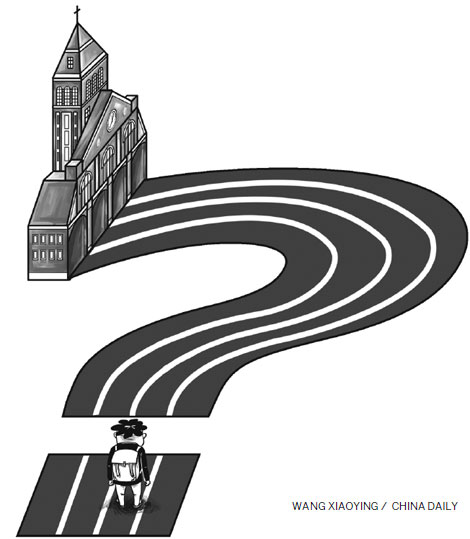
I arrived in the United States as a fresh college graduate from Nanjing University 14 years ago for higher studies, and ultimately completed my doctorate at Johns Hopkins University in Maryland. At that time, it was rare to hear about Chinese students funding their studies. A vast majority of Chinese students were, like me, getting full scholarship from American universities covering their tuition as well as living expenses.
Times have changed drastically. The booming Chinese economy has given rise to a more affluent middle class and, as a result, more Chinese families can now afford to pay for college education in the US - which is quite challenging even for average American families.
I started teaching in a private research university, nestled in a quiet and almost never-changing upstate New York, eight years ago. What has added to the vitality of the small town is the pronounced increase in the number of Chinese undergraduate students, accompanied by the mushrooming of Asian restaurants and grocery stores that cater to this population. I have interacted with many of these undergraduates, inside and outside classrooms, and know that almost all of them are self-financed students (rather their parents pay their tuition and other expenses).
With deep enough pockets to afford expensive higher education abroad, many Chinese parents wonder when they should get their children admitted to overseas universities. To help them make an informed decision, I share some thoughts about the difference between undergraduate and graduate students in American universities. Simply put, the difference is in two areas: academic life and social life.
Academically, undergraduates are required to do more course work than graduate students. A typical American undergraduate requires four years of course work and more than 100 credit hours to complete his/her studies, while graduate students are typically required to do a maximum of two years of course work. Graduate students, particularly doctoral candidates, spend the majority of their time on research and their goal is to write a thesis or dissertation.
Besides, undergraduate students also need to do a much wider range of course work than graduate students. Graduate students tend to be pre-screened and often concentrate on a few subjects such as natural science and engineering, while undergraduates often come without a specific major and are in no haste to declare one in most universities.